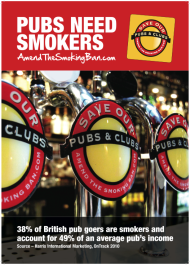Cost of fuel won't stop me driving
 Friday, April 9, 2010
Friday, April 9, 2010 Petrol prices reached an all-time high yesterday, reports the Daily Telegraph, with the average tank of fuel £5 more expensive that it was at the start of the year. The paper predicts that the £6 gallon is not far off.
I'm so old I remember the furore when the price of a gallon of fuel hit £1. Over the years the cost of a tank has risen from £30 to £50 and, now, £74. (Well, that's what it cost me when I filled up yesterday.)
However, like a smoker who refuses to quit despite the exhorbitant cost of cigarettes, I have no intention of letting the price of fuel change my lifestyle. Eventually something may have to give but it certainly won't be my car or the number of miles (approximately 30,000) I drive each year.
I love my car, and I love driving. Always have, always will. Commuting into London by train is one thing (it's quicker, for a start) but faced with a longer journey - to Edinburgh, for example - and a flexible schedule I will almost always choose to drive rather than go by train or plane.
For all the traffic jams, speed restrictions and "safety" cameras (which are, I admit, an increasing issue), nothing can take away the sense of freedom you get from sitting behind the wheel.
In the UK the best place to drive has to be Scotland, epecially the west coast and the borders, but it doesn't really matter because once you're in your car you can create your own micro-climate and habitat whether that be music, talk radio or (shock horror) the wonderful sound of ... silence.
The government knows this which is why it can get away with taxing fuel so heavily. All I know is, if I am forced to think twice about jumping in my car because of the cost, another bit of freedom will have died and life will not just be different - it will be significantly worse.
 Simon Clark
Simon Clark
The Telegraph also reports that "temporary speed cameras are catching out drivers long after the roadworks they were intended to police have been completed".
Doesn't surprise me. I've written about this before. Average speed cameras - set up to "protect" people working on our roads - are proliferating at an extraordinary rate, despite the fact that for long periods of the day, and for long stretches of road, there is not a single worker in sight.
I accept the need for speed cameras - including average speed cameras - in some locations, but the whole thing is becoming a joke. The truth is, central and local government quickly come to rely on the additional revenue that speed cameras provide and they are loathe to give it up. So, once in place, even "temporary" cameras become permanent.
I am convinced that within 10-15 years cars will be restricted to 60mph on motorways, 50mph on all A-roads, 30mph on B-roads and 20mph in residential areas. Average speed cameras will be the norm and anyone who exceeds the speed limit will not only be fined heavily and banned from driving, they will also be chastised for their "dirty, disgusting habit" (even if they are driving a sixth generation Prius).
 Simon Clark |
Simon Clark |  1 Comment |
1 Comment | 









Reader Comments (1)
On smoking, drinking, driving and obesity the socialists have had a field day for the last 13 years. It was their day in the sun so to speak.
I hope I am not making a party political point here in that the Labour Party's core supporters were generally indifferent or were employed by the state to implement the changes. The majority of Conservatives and especially the activists would not stand for much more intrusion. Key right of centre commentators like Peter Hitchens and Simon Heffer pre election are very critical of Cameron as being too centrist, a feeling shared privately by many Tories.
About 75% of the new Tory intake of MPs are anti nanny state, eurosceptic and economically dry and with a conduit in the form of ConservativeHome a Conervative administration would be put on the backfoot soon into power.
I remain optimistic.